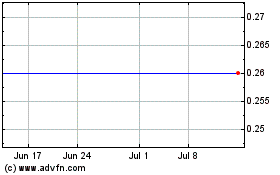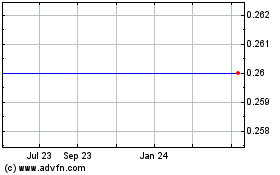By Drew FitzGerald
Frontier Communications Corp.'s big bets on landlines are
unraveling.
The once small phone company amassed $17 billion in debt by
scooping up networks across the country from Verizon Communications
Inc. and AT&T Inc. It was a contrarian strategy that Frontier
could generate steady revenue from residential internet and video
services even as wireless use exploded.
Instead, Frontier has been losing customers and scrambling to
cover looming debt payments. The Norwalk, Conn., company recently
slashed its dividend, and its shares have tumbled 69% so far this
year. It plans a 1-for-15 reverse stock split on Monday, a move
designed to keep its Nasdaq listing.
Frontier's troubles multiplied in spring 2016 after it closed a
$10.5 billion deal for phone and internet lines from Verizon. The
move nearly doubled Frontier's revenue and gave it millions of new
customers in California, Texas and Florida. They included 1.6
million subscribers on Fios, a fiber-optic service that appeared
lucrative but hid some snags below the surface.
"This last acquisition was largely about acquiring fiber," a
strategy the company still supports, finance chief Perley McBride
said. "It's just integration that didn't go well. When you double
in size and you don't do it well, it's sort of up front and
center."
Mr. McBride said he doesn't expect revenue growth anytime soon
from the consumer markets acquired from Verizon last year. That is
a reversal from the forecast of his predecessor, John Jureller, who
in 2015 called the revenue trends "very positive."
Revenue has instead declined companywide for the past year.
Frontier's 2016 loss widened to $373 million from $196 million a
year earlier. The company plans to devote at least $1 billion this
year on capital spending to keep its network humming.
"Cable companies are beating the pants off Frontier," said
Jonathan Chaplin, an analyst for New Street Research, noting that
companies like Charter Communications Inc. have invested more
heavily in marketing, network equipment and customer service in the
past three years.
The stiffened competition came just as Frontier faced pressure
to cut costs, partly so it could pay for the networks it bought.
The result was a series of network failures and complaints about
customer service.
Compounding that challenge, Frontier said Verizon stopped
writing off overdue accounts before the deal closed, saddling the
acquirer with thousands of subscribers unlikely to pay their
outstanding bills.
"Verizon is notorious for being very good sellers of assets,"
said Moody's Investors Service analyst Mark Stodden. The
bond-rating firm recently downgraded Frontier's credit to B2, five
steps below investment grade, citing "sharp subscriber losses"
since the latest acquisition.
Verizon spokesman Bob Varettoni said the company's "objective
was to concentrate landline operations in contiguous northeast
markets to enhance operational efficiency, and to sharpen our
strategic focus on wireless."
Other telephone companies who have acquired assets from Verizon
have also suffered poor results. Verizon's former Hawaiian
franchise filed for bankruptcy protection in 2008 after it was sold
to a private-equity firm. FairPoint Communications Inc. declared
bankruptcy in 2009 after it spent $2.3 billion on Verizon landlines
in New England.
"If Verizon's selling assets, they're selling them for a
reason," New Street's Mr. Chaplin said. In Frontier's case,
"Verizon had taken those markets pretty close to saturation before
they sold. That's the point at which they punted the assets to
Frontier."
Verizon wasn't an unfamiliar business partner to Frontier, which
paid $8.6 billion in 2010 to acquire the wireless carrier's
landlines in 14 states.
Frontier's profits were barely growing in the years leading up
to its latest deal, but its performance took a turn for the worse
after the deal closed. It was the Fios business that undershot
executives' rosy expectations the most as cancellations
climbed.
Departing customers remain one of the company's most daunting
challenges. "Frontier must reverse its subscriber trends to
demonstrate sustainability to the bond market or it will face
growing refinance risk" as it approaches $2.4 billion in debt
payments due in 2020, Moody's wrote in a May 24 research
report.
Frontier's executives say the business is trending in the right
direction. Customer losses, excluding canceled past-due accounts,
have eased. New managers include a former executive of Alphabet
Inc.'s Google Fiber hired to improve network performance.
Mr. McBride said Frontier had an eye on the future when it
bought landlines from Verizon and AT&T, each time gaining
networks with a bigger share of high-tech fiber optics and fewer
copper wires. "The company's always stuck to its knitting of
fixed-line communications services rather than venturing out into
mobile," he said.
Another carrier, Consolidated Communications Holdings Inc., also
pinned its future on fiber, though it snapped up many assets for
less money. Its acquisition of FairPoint closed earlier this month
for $1.3 billion, including debt. Consolidated said the deal would
cut the combined company's costs and support its dividend.
"Ourselves and Consolidated are sort of the last of the
traditional telcos," Mr. McBride said. "But we can't operate that
way."
(END) Dow Jones Newswires
July 08, 2017 07:14 ET (11:14 GMT)
Copyright (c) 2017 Dow Jones & Company, Inc.
Frontier Communications (NASDAQ:FTR)
Historical Stock Chart
From Mar 2024 to Apr 2024

Frontier Communications (NASDAQ:FTR)
Historical Stock Chart
From Apr 2023 to Apr 2024
